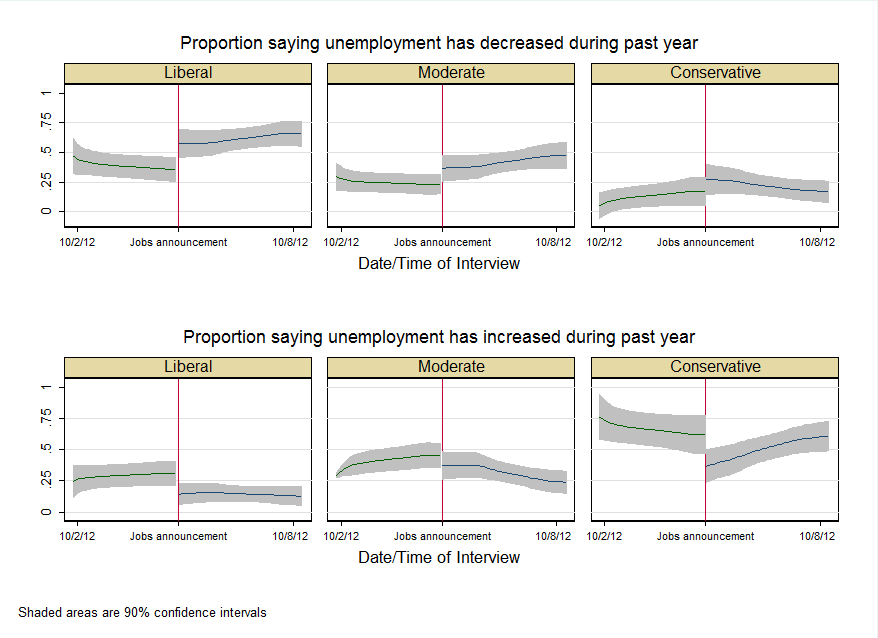A recent UMass poll was in the field when the September jobs report came out, showing the unemployment rate to have dropped to 7.8%. Brian Schaffner writes about how liberals and conservatives reacted differently to this news:
bq. The chart below plots this pattern, dividing the data by the moment that the jobs report was released. Note that immediately after the jobs announcement liberals are much more likely to say that the unemployment rate had decreased over the past year and much less likely to say that it had increased. A very different pattern presents itself for conservatives. Conservatives initially react to the news as well; respondents answering the survey immediately after the jobs report were more likely to say that the unemployment rate had decreased in the past year and less likely to say that it had increased. However, as more time passed after the jobs announcement, conservative responses began to regress back to where they had been prior to the announcement. Indeed, within a day or two of the jobs report, conservatives were back to answering the unemployment question about as they had prior to the report.
This is garden-variety partisan or ideological bias in the processing of new information, something that we’ve written about many times (e.g., here). Inconvenient information is often “forgotten” or rationalized away. Of course, such bias is present among both liberals and conservatives.
Schaffner’s broader point is that this shows why it’s hard for late-breaking information in the campaign to be consequential. Those people most likely to learn this information are the least likely to process it in a way that might change their attitudes.




